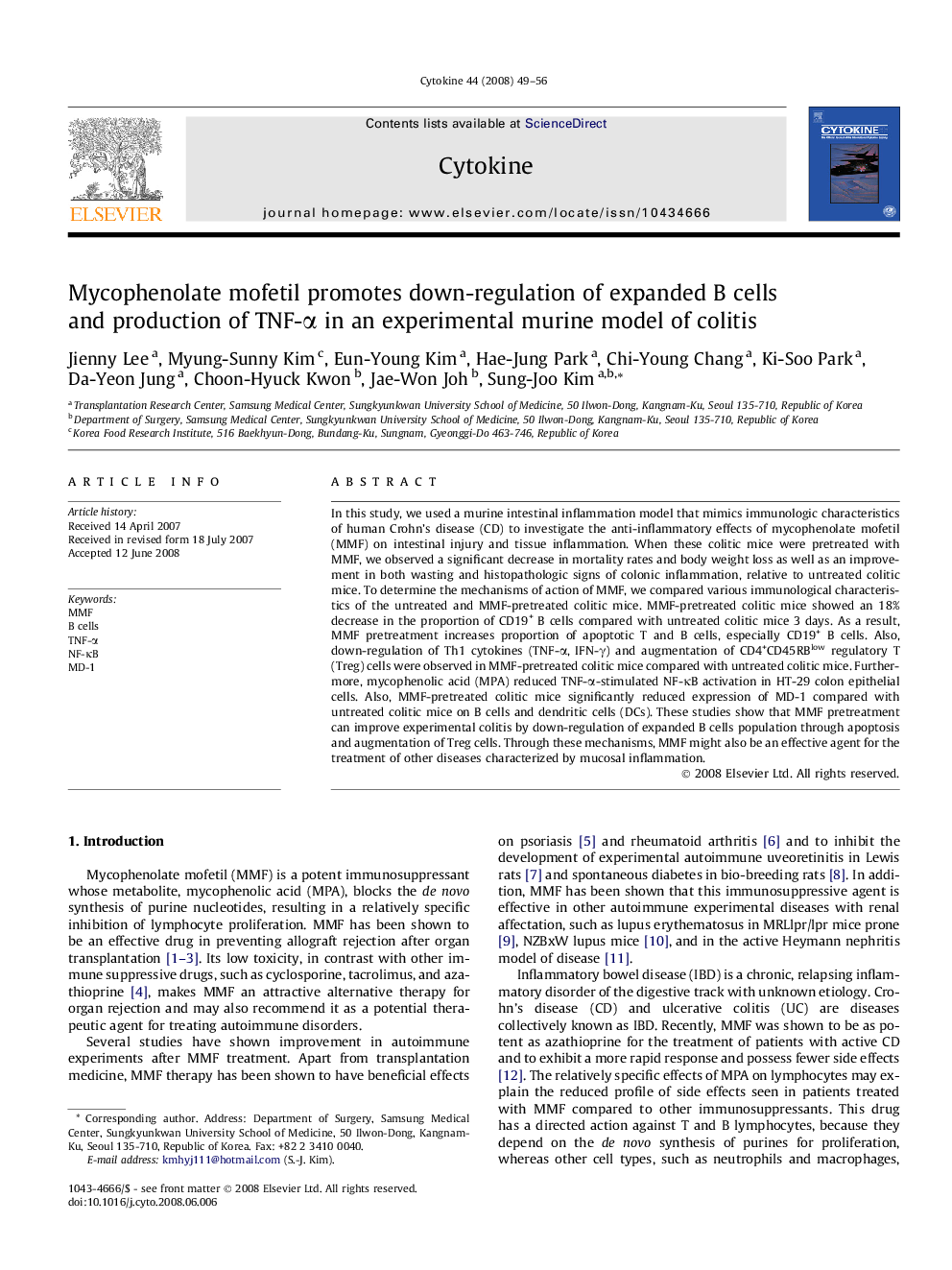| Article ID | Journal | Published Year | Pages | File Type |
|---|---|---|---|---|
| 2795400 | Cytokine | 2008 | 8 Pages |
In this study, we used a murine intestinal inflammation model that mimics immunologic characteristics of human Crohn’s disease (CD) to investigate the anti-inflammatory effects of mycophenolate mofetil (MMF) on intestinal injury and tissue inflammation. When these colitic mice were pretreated with MMF, we observed a significant decrease in mortality rates and body weight loss as well as an improvement in both wasting and histopathologic signs of colonic inflammation, relative to untreated colitic mice. To determine the mechanisms of action of MMF, we compared various immunological characteristics of the untreated and MMF-pretreated colitic mice. MMF-pretreated colitic mice showed an 18% decrease in the proportion of CD19+ B cells compared with untreated colitic mice 3 days. As a result, MMF pretreatment increases proportion of apoptotic T and B cells, especially CD19+ B cells. Also, down-regulation of Th1 cytokines (TNF-α, IFN-γ) and augmentation of CD4+CD45RBlow regulatory T (Treg) cells were observed in MMF-pretreated colitic mice compared with untreated colitic mice. Furthermore, mycophenolic acid (MPA) reduced TNF-α-stimulated NF-κB activation in HT-29 colon epithelial cells. Also, MMF-pretreated colitic mice significantly reduced expression of MD-1 compared with untreated colitic mice on B cells and dendritic cells (DCs). These studies show that MMF pretreatment can improve experimental colitis by down-regulation of expanded B cells population through apoptosis and augmentation of Treg cells. Through these mechanisms, MMF might also be an effective agent for the treatment of other diseases characterized by mucosal inflammation.
